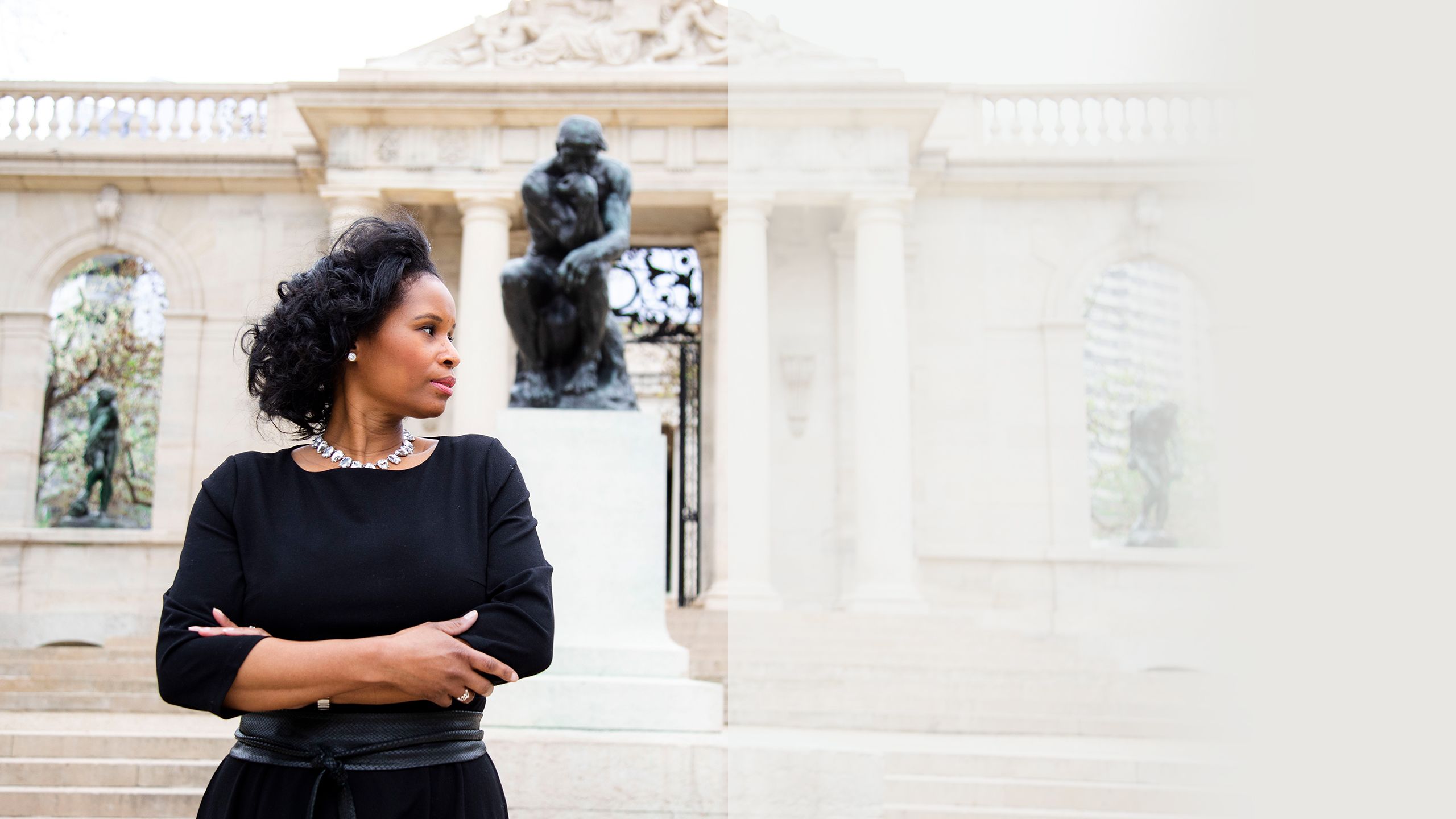Thinking
Outside the Box
Nyeema Watson sets a new vision
for Diversity, Inclusion, and Civic Engagement

Camden residents remember 2012–13 as a decidedly low point for the city. There were 67 homicides in 2012—the most in the city’s history—and the police department was disbanded and restructured. The following spring, then-Governor Chris Christie took over the city’s schools, which had the second-lowest graduation rate in the state.
“So much has changed since then,” said Nyeema Watson, Rutgers University–Camden’s vice chancellor of diversity, inclusion, and civic engagement. “The police department has gotten national and international accolades for its work. Crime is down considerably. Economic investment is back. We have a school system that has changed dramatically, including a host of charter schools, and we’ve seen academic gains.”
Soon, Rutgers–Camden students will be interviewing current and former local residents as part of an oral history project to capture their reflections on the upheaval the city experienced a decade ago. The project is expected to lead to an archive of residents’ recollections, as well as a symposium on campus in the fall.
The oral history project, focused on racial equity, is one of a number of initiatives at Rutgers–Camden under a newly restructured diversity, equity, and inclusion (DEI) effort. The campus recently combined its DEI programs and community partnerships into a new Division of Diversity and Civic Engagement. The move aligns with the goals of Rutgers–Camden Chancellor Antonio D. Tillis as well as one of Rutgers President Jonathan Holloway’s overarching priorities: to build an equitable, inclusive, and diverse community across all university locations.
“We’re committed to making diversity a way of life on our campus, where all members of the university community feel welcome, valued, and respected,” said Chancellor Tillis.
In the oral history project, students in Rutgers–Camden’s Bonner Civic Scholars program spent part of the spring 2022 semester learning about the events of 2012–13 in Camden, as well as about the techniques and cultural aspects of oral histories. This summer they’ll begin interviewing current and former Camden residents. About 25 students are expected to be involved before the project is completed.
“Oral histories lift up and find value in everyday experiences,” said Simanti Lahiri, the campus’ program coordinator for student civic engagement. “They give us a new way to understand history.”
Also this spring, Rutgers–Camden established a DEI Council, composed of faculty, students, and staff, to advise the chancellor on diversity efforts and to provide a vehicle for the campus community to deal with DEI issues. “If there’s an issue that pops up or a conversation that needs to be held, this would be the forum for it,” said Vice-Chancellor Watson. In the fall, Watson hopes to finalize a community advisory committee focused on similar topics in the town-gown space.
Another new effort on campus is the Truth, Racial Healing, and Transformation Center, part of a nationwide initiative to enable colleges and universities to examine the historical impact of racism on their campuses. As part of the program, members of the Rutgers–Camden community will have opportunities to participate in racial healing circles—constructive conversations around difficult topics such as race and injustice.
“A lot of cultures use healing circles to create a shared experience, to understand the common humanity in one another other,” Watson said. “Once you understand and respect each other, then you can have more critical conversations.” Faculty, students, and staff are currently undergoing training in participating in and hosting healing circles; the plan is to first conduct the circles on campus, then offer the approach to the local community, and, ultimately, to “have campus and community come together and see where we overlap,” said Watson.
“We’re committed to making diversity a way of life on our campus, where all members of the university community feel welcome, valued, and respected.”
Naima Hall, named in January 2022 to be the campus’ director of diversity, equity, and inclusion, is leading the healing-circles project. “These are conversations that trigger emotions,” said Hall. “We want to have the emotional intelligence to help us to navigate these dialogues, where we can start to see experiences that may not be our own lived experiences, yet see them through a lens of empathy and compassion.”
Meanwhile, Rutgers–Camden is continuing a number of its existing DEI and community engagement efforts—notably its programs to introduce Camden-area schoolchildren to the opportunities that a college education can provide. The campus has offered after-school programs for K–12 students for 10 years and also offers college access programs (including Rutgers Future Scholars and the Hill Family Center for College Access) for 8th through 12th graders.
“The core of this work is to provide access to groups of individuals who have been underrepresented, have been marginalized, bilingual populations, people who do not see college as an option,” said Michele Garcon, the Rutgers–Camden director of education partnerships. “They interact with college students, and they can see themselves attending college.”
Some of the programs take place in the community, while others involve bringing the young students to campus—and that’s by design, according to Vice Chancellor Watson.
“They’re in our classrooms, they’re in our gym, they’re eating in our dining halls, they stay in our dorms,” she said. The idea is for the youths to see the possibility of coming to college. “We want them to see that Rutgers isn’t a place that a kid in the community walks around—this campus is for them.”
The DEI work is ongoing, and so is the community engagement—both are central in a campus strategic plan completed this spring, and both are intertwined. “We want to ensure that we’re putting diversity, equity, and inclusion at the foundation of our work on campus,” says Watson, “and that it also sits at the core of how we engage with the city of Camden and beyond.
“Our goal as an institution is that, for any individual that we come in contact with—regardless of their identity or positionality—they feel seen, heard, and valued, and that they have the ability to thrive and reach their full potential.”
